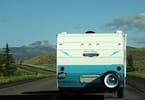FORT LAUDERDALE, Fla. – September and October, the traditional “shoulder season” between summer’s high season and winter’s low season, are good months for slow walkers and individuals with special needs to travel. There are fewer tourists overall, meaning more space on walkways and fewer lines for museums and other attractions. Prices drop, too, especially for international destinations.
If you are planning to take advantage of shoulder season to travel abroad, here are a few facts you should know before embarking on an international trip.
Booking an International Flight: While U.S. regulations mandate that U.S. air carriers cannot refuse transportation on the basis of disability (except in extreme cases) these rules may not cover foreign air carriers serving the U.S. Non-U.S. airlines belonging to IATA (International Air Transport Association) voluntarily adhere to rules similar to those of the U.S.; however, smaller overseas airlines may not be IATA members. Check with all airlines you will be connecting with. U.S. airlines are required to provide information concerning accessible facilities and services.
Only wide-body aircraft with two aisles are required to have fully accessible lavatories. Aircrafts with 60 or more seats must also have an on-board wheelchair and personnel must assist with moving the wheelchair from the seat to the area outside the lavatory.
Flying Alone: U.S. airlines are required to accept your declaration that you are self-reliant enough to travel. However, if you require oxygen in-flight, they may deny booking/boarding you. If you request mobility assistance, U.S. airlines with 30 seats or more must provide access to the aircraft door (preferably by a level entry bridge), an aisle wheelchair, and a seat with removable armrests.
Airline personnel are not required to transfer passengers from wheelchair to wheelchair, wheelchair to aircraft seat, or wheelchair to lavatory seat. If you are not able to transfer yourself, you should travel with an attendant. However, airlines cannot require you to travel with an attendant except in special cases (i.e., you can neither hear nor see). If you have doubts regarding accessibility, contact the Department of Transportation Hotline 1-800-778-4838/1-800-435-9880 (TTY).
Traveling with a Service or Companion Animal: If you are taking your companion animal abroad, your animal must comply with quarantine regulations in countries you travel in or through. Verify their requirements. On return, your animal will also be subject to U.S. Animal Import Regulations.
Bringing vs. Renting Special Needs Equipment: If you are considering bringing your personal special needs equipment, whether wheelchair, scooter or oxygen equipment, to use during your trip, remember, these items may be subject to restrictions or special handling and advance notice requirements. For example, oxygen concentrators must meet specific requirements, and wet-acid batteries in electric wheelchairs are often stowed in a separate compartment.
Hauling your special needs equipment across the ocean or around the world is inconvenient and not always trouble-free. The equipment can be easily damaged or even lost in transit and it is not always easy to find the correct replacement parts for your wheelchair, oxygen concentrator or other special needs equipment abroad. A better option is to lease the equipment you require for travel from a specialty firm dedicated to providing special needs equipment for travelers.
WHAT TO TAKE AWAY FROM THIS ARTICLE:
- The equipment can be easily damaged or even lost in transit and it is not always easy to find the correct replacement parts for your wheelchair, oxygen concentrator or other special needs equipment abroad.
- If you are planning to take advantage of shoulder season to travel abroad, here are a few facts you should know before embarking on an international trip.
- airlines with 30 seats or more must provide access to the aircraft door (preferably by a level entry bridge), an aisle wheelchair, and a seat with removable armrests.






















